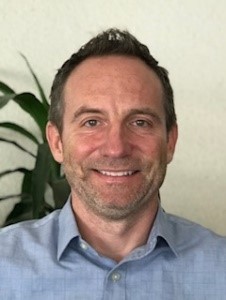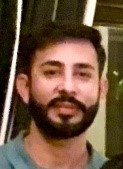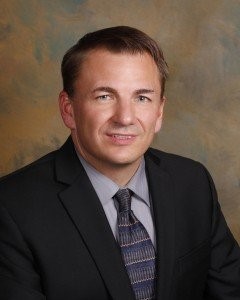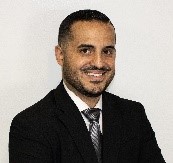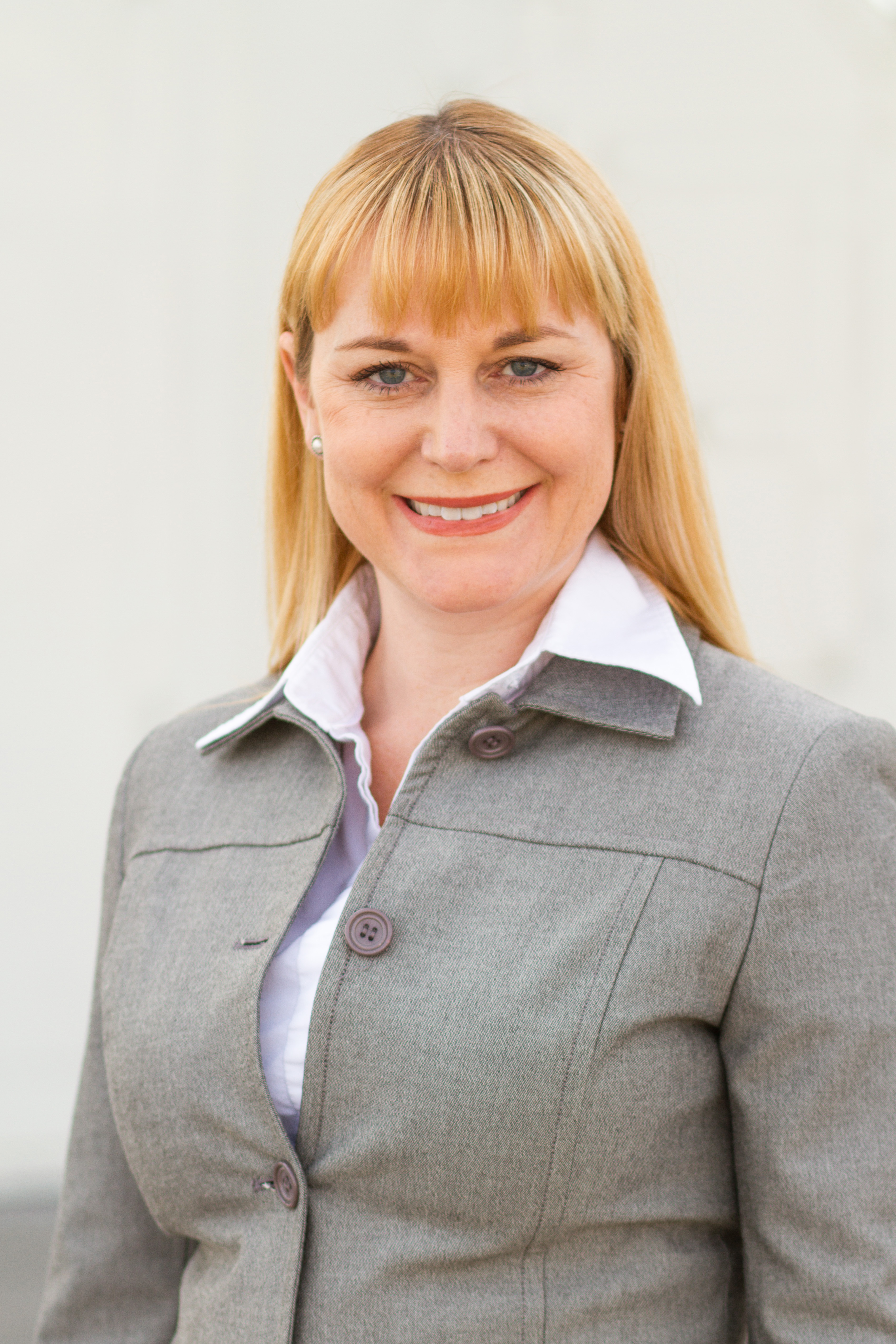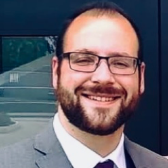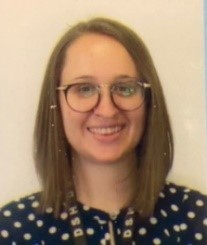DSH - Patton: Internships - Training Committee
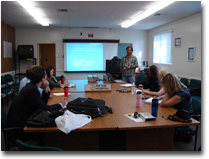
"I've learned that people will forget what you said, people will forget what you did, but people will never forget how you made them feel"
--Maya Angelou
The DSH-Patton Training Committee is composed of the Training Director, Chief of Psychology, and supervisors from the internship, fellowship, and practicum programs. The Training committee also includes all seminar leaders for the three training programs.
This committee meets on a monthly basis to discuss issues related to psychology training at Patton. Although the training committee members provide the bulk of the supervision in the three training programs, several other supervisors from the Department of Psychology provide additional supervision. Trainees at all levels are exposed to multiple supervisors each training year. The professional biographies listed below give a brief description of some of the interests of the Training Committee members and some of our more regular additional supervisors. Additionally, each supervisor below provided a few sentences about her or his approach to supervision.
Cynthia Aguilar, Psy.D. 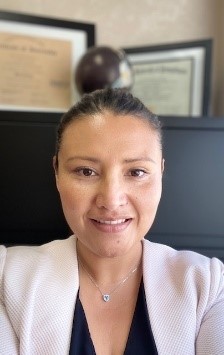
Biography:
Dr. Aguilar received her Psy.D. in Clinical Psychology from the Indiana University of Pennsylvania with an emphasis in Neuropsychology. She went on to complete her Clinical Psychology Internship from the Miami VA Healthcare System, where she specialized in both Geropsychology and Neuropsychology. She completed a 2-year postdoctoral fellowship in Clinical Neuropsychology at DSH-Patton. Dr. Aguilar subsequently worked as a staff neuropsychologist in the private sector, where she specialized in providing neuropsychological services to older adults with suspected cognitive disorders. Ultimately, she returned as a staff neuropsychologist for DSH-Patton and is actively involved in the training program at the practicum, internship, and postdoctoral level. Dr. Aguilar speaks fluent Spanish and has been actively involved in providing equal access to neuropsychological services to the vast number of Spanish speaking patients at DSH-Patton. Dr. Aguilar’s primary interests include gero-neuropsychology, Latinx factors in neuropsychology, and the intersection between the two. Cognitive rehabilitation, and the “treatment” aspect of neuropsychology is an additional interest for her. She is one of the primary facilitators for the FREE program, which provides cognitive remediation therapy to patients with low cognitive functioning. In her spare time, she enjoys reading and spending most of her time outdoors.
Approach to Supervision:
Working with trainees is one of the most rewarding aspects of my job. As a supervisor, I have a strength-based and collaborative approach to training. My overarching goal to help a trainee begin to tackle clinical issues less through the lens of a trainee and more through the lens of an independent clinician. I believe the training years is a time to build confidence as a clinician, while simultaneously being exposed to complex clinical cases that will help the trainee grow as a clinician. I stive to provide a supportive structure where the trainee can obtain unique, challenging, and rewarding clinical experiences to help them in their professional goals.
Robert Brodie, Ph.D. 
Biography:
Dr. Brodie has always had two particular educational passions, psychology and criminal law. While completing his B.A. degree at the University of California, Irvine, he majored in psychology and had a minor in criminal law. While at UC Irvine he took a course entitled the Psychology of Blacks and began to learn the foundation for what grew into the field of cross-cultural psychology. He attended the University of California, Santa Barbara because its doctoral program specialized in issues of multiculturalism and cultural competence. Dr. Brodie completed his clinical internship in the Forensic Track at DSH - Patton. The following year, he completed the postdoctoral fellowship in Forensic Psychology DSH - Patton. Currently, Dr. Brodie is a Senior Psychologist Supervisor at Patton, where his clinical work allows him to complete forensic assessments, conduct individual and group therapy, and participate in the supervision and training of our clinical trainees and Staff Psychologists. In addition to his work at Patton, Dr. Brodie has been an adjunct instructor at the University of La Verne and holds a private clinical practice providing assessment, treatment, and consultation and specialize in providing culturally responsive services and interventions.
Approach to Supervision:
“Clinical supervision is a process that is adjusted depending on the needs of the supervisee and the type of treatment that is being provided. I thoroughly enjoy the process of supervision and hope that the supervisee will also. I look to challenge the supervisee to push the limit and try different techniques in their work. My theoretical orientation is cognitive-behavioral but I am eclectic in technique. Internship is a year to develop a professional identity and I hope to assist in that process. Remember two things, recognize when you are working harder than your client and enjoy the work that you do.”
Tonneka Caddell, Psy.D. 
Biography:
Dr. Caddell received her Psy.D. in Clinical Psychology with an emphasis in family systems and a concentration in forensic psychology from Azusa Pacific University. During her graduate training, she completed a clinical practicum conducting sex offender treatment at Sharper Future and an assessment practicum at Patton State Hospital. Dr. Caddell went on to complete her pre-doctoral internship at Springfield Hospital Center and returned to Patton State Hospital to complete the Postdoctoral Fellowship in Forensic Psychology. After her postdoctoral training, she joined the Patton team as a staff psychologist. Dr. Caddell’s research interests include forensic assessment, risk management and treatment interventions specific to sexual offenders, serious mental illness, and cultural mistrust. In 2021, she served as the Interim Director of Clinical Training for internship at Azusa Pacific University. Dr. Caddell is an avid fan of swimming, basketball, and self-care.
Approach to Supervision:
“My approach to supervision is centered around helping practicum students and interns develop their own style as a clinician by first identifying the needs and interests of each supervisee. I see supervision as a collaborative process that encourages growth in the supervisee’s knowledge, skills, and cultural competence. The goal is to help prepare the supervisee for his or her future as a psychologist.”
Elba Campos, Psy.D.
Biography:
Dr. Campos received her doctorate in Clinical Psychology with an emphasis in Forensic Family work, from the California School of Professional Psychology in San Francisco. She completed her internship at Patton State Hospital with an emphasis in Forensic and Multicultural treatment and assessment. Dr. Campos also completed the Forensic Post-Doctoral Fellowship at Patton State Hospital, after which she was hired as a unit psychologist on the mono-lingual Spanish speaking specialty unit. She worked as a unit psychologist at DSH- Patton for several years, during which she provided individual and group treatment as well as competence to stand trial, malingering, and hospital wide violence risk assessment to monolingual Spanish speaking individuals. During her time at DSH-Patton, she participated in the supervision and training of clerks, interns, and post-doctoral fellows as well as running the professional development seminar. In 2017, Dr. Campos transitioned to her current role in the Forensic Services Division of DSH headquarters in Sacramento as a senior consulting psychologist. Currently, she serves as the DSH liaison between DSH-Patton and various state contracted step-down and community outpatient treatment providers. Dr. Campos also oversees programing and program development statewide within the outpatient branch of DSH Forensic Services. She is fluent in Spanish and is able to provide supervision for Spanish-language cases. In addition to her work for DSH, Dr. Campos holds a forensic private practice providing assessment and consultation for extradition, political asylum, and fitness for duty cases. In her spare time, Dr. Campos enjoys everything soccer, working on her green thumb, and hiking with her dog Frida.
Approach to Supervision:
“I believe in a structured and collaborative approach to Supervision. As an assessment supervisor I strongly believe in empirically validated interpretation founded in current research. I also believe that we need to use our clinical skills to enrich empirically derived findings, and hope to help trainees further develop this skill set in writing and interpreting forensic assessment. One of my supervision goals is to work with trainees in providing multidimensional and practical “every day” recommendations to the individuals being assessed and their multidisciplinary treatment teams. Overall, I thoroughly enjoy being able to provide supervision and am always looking forward to meeting new people with varying backgrounds, personal experiences, and professional foundations.”
David Contreras, Psy.D. 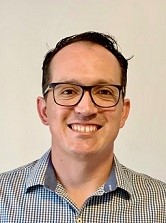
Biography:
Dr. Contreras received his doctorate in clinical psychology from the University of La Verne. He completed his predoctoral internship at Arkansas State Hospital and then, a Forensic Postdoctoral Fellowship at the University of Arkansas for Medical Sciences/Arkansas State Hospital. Dr. Contreras serves as a fellowship supervisor and also coordinates the internship assessment seminar where he lectures on various criminal capacities and mental health case law. Currently, Dr. Contreras is a Senior Psychologist Specialist in the DSH – Patton Forensic Evaluation Department. Dr. Contreras has provided trainings in the areas of violence risk assessment, competency, and malingering, and he is an author-approved trainer for the HCR-20v3. In addition to his duties at DSH – Patton, Dr. Contreras also maintains a private practice where he assesses various psycholegal capacities with adult and juvenile populations. He serves on expert panels for both San Bernardino and Los Angeles County, and he is also on a select panel of experts addressing juvenile competency matters in Los Angeles. His clinical and research interests include psychometrics, report writing, and assessment of response style. In his spare time, Dr. Contreras is an avid golfer, music fan, and collector of vintage guitars and amplifiers.
Approach to Supervision:
“Serving as a supervisor is one of the most rewarding aspects of my position, and I am consistently impressed by the wealth of knowledge and expertise our trainees bring into their training year. My goal is to help trainees recognize, and take ownership of their vast knowledge, while providing them with a space to develop new interests or specialty areas. It is my hope that by the end of the training year, interns are ready to transition into their roles as early career psychologists and budding leaders in our field.”
Sheri Curtis, Ph.D. 
Biography:
Dr. Curtis received her Ph.D. in Clinical Psychology from Loma Linda University in 2004. She completed her internship and postdoctoral fellowship in clinical psychology at DSH - Patton. Dr. Curtis has received advanced training in Dialectical Behavior Therapy (DBT), Gestalt Therapy and Psychodynamic Therapy. She has published in the areas of codependency and victim blame and her current research interest is in attachment theory, measurement, and clinical applications. Currently, Dr. Curtis is a Senior Psychologist Supervisor at Patton. In this capacity, she provides clinical supervision for 10 psychologists. Dr. Curtis has a strong interest in different psychological treatment modalities including DBT and is currently on the statewide DBT implementation committee for the California Department of State Hospitals. She has been a Coordinating Supervisor within the Patton internship for several years. In addition to her work at Patton, Dr. Curtis maintains a private practice in the community.
Approach to Supervision:
“Being a supervisor is a rewarding experience. On a professional level, it is stimulating because there is an element of seriousness to the process as well as an element of creativity. With supervisees, I encourage discussing the important topics of ethics, research findings, evidenced based practice, professional growth and adjustment, and case conceptualization. On a personal level, I consider the opportunity to work with interns as they transition to their professional roles a profound privilege.”
Janelle Dixon, Psy.D. 
Biography:
Dr. Dixon received her doctorate in Clinical Psychology with an emphasis in forensic psychology from Wright State University in Dayton, Ohio. She completed her internship in the Forensic Assessment and Treatment Track at the Federal Correctional Complex in Butner, North Carolina. During her forensic assessment rotation, she conducted forensic evaluations, including competency, sanity, and violence risk assessments. She was also afforded the opportunity to receive specialized training at the Federal Correctional Complex in Florence, CO, where she co-facilitated RESOLVE groups at the Administrative Maximum Facility (ADX) and facilitated Dialectical Behavior Therapy Skills Training groups in the STAGES program. The following year, she completed a postdoctoral fellowship in Forensic Psychology at DSH-Patton. As a former APA Minority Fellowship Program Fellow, her research interests have focused on clinical and social justice issues related to the forensic population. During her postdoctoral fellowship year, she created measures of cultural mistrust for the Minnesota Multiphasic Personality Inventory and Personality Assessment Inventory. At the conclusion of her fellowship year, Dr. Dixon was hired as a Staff Psychologist at DSH-Patton. In addition to her position at DSH-Patton, Dr. Dixon is developing a private practice where she will provide forensic assessment and consultation services for the adult and juvenile population. During her free time, she is engaged in a variety of self-care activities, such as traveling and practicing yoga.
Approach to Supervision:
“Supervision is a collaborative interpersonal process that includes education and training, utilizing evidenced-based practices. My goal as a supervisor is to assist trainees with gaining practical experience on how to integrate science and practice. I encourage self-efficacy by identifying their strengths and abilities and help them to build on those assets. An appreciation of diversity is also an imperative aspect of supervision. By entering the supervisory relationship with cultural humility, the trainee and I will discuss topics, such as intersecting diversity variables and how they play a role in the supervisory relationship as well as the trainee’s clinical work. Supervision is a meaningful and rewarding experience, and I look forward to supporting trainees as they grow professionally and personally.”
Sean Evans, Ph.D. 
Biography:
Dr. Evans received his Ph.D. in Clinical Psychology from Loma Linda University with concentrations in neuropsychology and pediatric psychology (his master’s thesis and dissertation were on the experience of pain in chronically ill children) and completed his internship in the Clinical Neuropsychology Track at Patton State Hospital. During this year of training, Dr. Evans completed a rotation conducting forensic evaluations (violence risk assessments, malingering and competency assessments) that resulted in changing his professional path from neuropsychology to clinical forensic psychology. While at Patton State Hospital, Dr. Evans has served as an admission psychologist on an all-female unit, behavioral consultant, Senior Psychologist Supervisor, and a Risk Management Specialist focusing on research, evaluation, and the reduction of institutional violence. He is currently a statewide data analyst and senior researcher for the California Department of State Hospitals and is based at DSH-Patton. In this capacity, he assists with research and quality improvement projects aimed at reducing/preventing violent behaviors and improving patient care. Abstracts of his research projects can be found on his ResearchGate profile. Dr. Evans holds an academic appointment as an Associate Professor in the Department of Psychology and Neuroscience Program at La Sierra University. Dr. Evans is also an avid fan of Pearl Jam, U2, Soundgarden, and the Seattle Seahawks.
Approach to Supervision:
“One of the guiding principles in my professional and personal life is embodied in the Socratic statement: ‘The unexamined life is not worth living.’ I think supervision reflects one of those rare opportunities in our development as clinicians to deepen our understanding of the human experience, through dialogue and collaboration, in which we examine ourselves and the individuals we serve. I prefer using a hypothesis testing model, in which initial ideas are discussed, hypothesized, and then tested against the empirical data derived from testing and observation. Being mindful of how we examine not only our own human experience, but also how we impact the experience of others, engenders more understanding and a life that is truly worthy of human existence.”
Troy Freimuth, Psy.D.
Biography:
Prior to attending graduate school, Dr. Freimuth spent two years as a behavioral specialist designing learning and behavioral management programs for children with autism. He then attended graduate school at Indiana State University focusing his studies in the areas of substance abuse treatment, motivational interviewing, and cognitive/constructivist therapies. He completed an internship at the University of Wisconsin-Madison counseling center and graduated with his Psy.D. in 2002. Before joining the staff at DSH - Patton, Dr. Freimuth worked in a maximum security youth prison, a medical hospital for Native Americans, and spent several years in private practice providing individual, family, and group therapy as well as conducting assessments for local agencies and the courts. During this time, he received specialized training in DBT, motivational interviewing, crisis counseling, Gottman’s couples therapy, therapy with children, and transcendental meditation. At DSH - Patton, Dr. Freimuth has worked on units treating and assessing individuals who are incompetent to stand trial as well as individuals who were found not guilty by reason of insanity, mentally disordered offenders, and individuals who are civilly committed on a conservatorship. Currently, Dr. Freimuth oversees all substance abuse treatment at Patton State Hospital. Dr. Freimuth is one of the facilitators of the psychotherapy seminar. In his personal life, Dr. Freimuth is an avid fan and practitioner of mixed martial arts, soccer, basketball, poker, and videogames.
Approach to Supervision:
“I use a developmental supervisorial model tailoring supervision to the progress and needs of the supervisee gradually moving from more didactic instruction and close supervision to more of a consultative role as the year progresses. I stress the importance of ‘relationship’ as being the fundamental building block in all aspects of clinical practice including the supervisory relationship, therapy relationships, assessment relationships, collegial relationships, and consulting relationships. I conceptualize in an integrative framework primarily drawing upon behavioral, constructive, narrative, and emotion focused perspectives along with some incorporation of psychodynamic theory. I believe strongly that therapy has elements of both science and art/craft and encourages supervisees to always be aware of the empirical support for the interventions that they are utilizing. Further, he stresses how the lens (theory/theories) we use both aid and constrict us in understanding the unique individual that we are interacting with.”
Biography:
Dr. Glassmire received his Ph.D. in Clinical Psychology from the Pacific Graduate School of Psychology and completed his internship in the Clinical Neuropsychology Track at DSH - Patton. The following year, he completed a postdoctoral fellowship in forensic psychology with an additional emphasis in clinical neuropsychology at Patton. Dr. Glassmire was formerly the psychologist in Patton’s Substance Abuse and Mental Illness program and was later a psychological assessment consultant on a program for patients adjudicated as incompetent to stand trial. He has been the Internship Director at Patton since 2006 and currently directs all three training programs. In addition to serving as Patton’s Training Director, Dr. Glassmire maintains a part-time private practice providing treatment and forensic assessments. Dr. Glassmire enjoys teaching and was formerly a part-time faculty member in the Department of Gerontology at the University of Southern California teaching both graduate and undergraduate classes for six years. Dr. Glassmire is actively involved in research on the MMPI-2-RF, trial competency assessment, and the assessment of malingering. Abstracts of his research projects can be found on his ResearchGate profile. For about 10 years, Dr. Glassmire served as a Consulting Editor for the Journal of Personality Assessment in the areas of MMPI-2 and cross-cultural assessment. Dr. Glassmire is a Diplomate in Forensic Psychology with the American Board of Professional Psychology (ABPP). In his spare time, Dr. Glassmire enjoys distance running and watching movies, particularly those that display the breadth of the “human experience” and have a quirky nature.
Approach to Supervision:
“I find that providing supervision to interns is the most rewarding part of my job because it keeps me in touch with the professional development process of future psychologists. I think of supervision as a collaborative process in which we work together to understand the individuals we serve at the hospital. Although I provide my initial hypotheses about cases during supervision sessions, I also try to challenge supervisees to articulate the rationale underlying their own hypotheses about the case in question.”
Kerry Hannifin, Psy.D.
Biography:
Dr. Hannifin received her Psy.D. in Clinical Psychology with an emphasis in Family Systems from Azusa Pacific University in 2008. She completed an internship at The Guidance Center in Long Beach. As part of her internship training she completed specialty rotations in neuropsychology at Jonathan Jaques Children’s Cancer Center at Long Beach Memorial Medical Center and in child/adolescent trauma and abuse at the federally funded MCAVIC-USC Child and Adolescent Trauma Center in Long Beach. Dr. Hannifin also received one year of formal Dialectical Behavior Treatment (DBT) training at Harbor UCLA. Dr. Hannifin was hired as a staff psychologist at DSH-Patton in 2008 and worked on admission units until 2019 when she joined the Forensic Evaluation Department (FED) as a forensic evaluator. In 2021, Dr. Hannifin was appointed as one of the Senior Psychologist Supervisors in the FED. Dr. Hannifin also has a private practice in which she completes forensic evaluations and serves as a Qualified Medical Evaluator (QME). Dr. Hannifin has provided supervision at the practicum and intern level and is currently the Professional Development Seminar facilitator for the Post-Doctoral fellows.
Approach to Supervision:
“As a supervisor, my goal is to help each trainee grow into an autonomous, self-confident professional. I like to create a supervision environment that trainee’s feel comfortable sharing not only individual case questions but professional growth questions. My approach to supervision is one that is collaborative as I believe this approach allows trainees the opportunity to develop stronger case conceptualization skills and a sense of professionalism. I find working with the trainee’s in one capacity or another is one of the most fulfilling and rewarding aspects of my role as a psychologist.”
Biography:
Dr. Hartounian graduated from the University of California, Los Angeles with a Bachelor of Arts degree in psychology. She received her Master of Science and Doctor of Psychology degrees in clinical psychology from the University of La Verne. She completed advanced practicum training at Patton State Hospital. Dr. Hartounian completed her pre-doctoral internship at Mendota Mental Health Institute, an inpatient forensic state hospital in Wisconsin. During internship, she completed rotations focused on violence risk and competence to stand trial assessments. As a post-doctoral fellow at Central Regional Hospital’s Forensic Evaluation Center in North Carolina, she completed outpatient evaluations of competence to stand trial and mental state at time of the offense. In 2018, Dr. Hartounian was hired at Patton State Hospital, where she works on an all-male PC 1370 (competency) unit.
Approach to Supervision:
“As a new graduate student/practicum trainee, I viewed supervision as completely focused on being 'taught' how to conceptualize a case, diagnose a client/patient, do therapy, and write assessment reports. Through the supervision that I received and my research/dissertation on the topic of supervision, I realized that a great supervision was more than just ‘teaching’ your trainees these clinical and assessment skills. I like to start the supervision process by focusing the initial session(s) on discussing the trainee's experience, trainee's expectations from supervision and goals, expectations from the trainee, and our roles in this process. The supervision process is different depending on the needs and the development level of the trainee. In addition, each session can be different depending on what we agree is most important to discuss/focus on. For example, with previous trainees, we have had sessions where we have completely focused on case conceptualization and/or editing an assessment report. At other times, we have spent session(s) discussing the challenges and/or countertransference that a trainee has experienced while working with a client/patient. And, at times, our supervision sessions have been completely focused on professional development topics such as discussing future training sites/opportunities, career goals, expectations/challenges during internship and/or post-doctoral training year, etc.”
Victoria King Palenscar, Psy.D.
Biography:
Dr. King Palenscar earned her M.A. in Clinical Psychology with an emphasis in marriage and family therapy at Pepperdine University in 2004 and later graduated from Pepperdine with her Psy.D. in Clinical Psychology in 2007. She completed an internship at DSH - Patton in the Forensic Track and was subsequently hired as a staff psychologist at DSH - Patton. Initially she worked as a unit psychologist on a long-term medically fragile unit and later transferred to an all-female acute admissions unit. She also previously currently serves as a hospital-wide assessment consultant.
Approach to Supervision:
“I have found supervising to be one of the most rewarding aspects of my experience working at DSH - Patton. I enjoy assisting students in their transition from trainees to professionals. As a supervisor I believe it is my role to provide a supportive environment for student to openly share their experiences, concerns and successes. I meet students where they are and as the year progresses encourage more independence. At the same time I remain available to provide as much information and assistance as needed.”
Biography:
Dr. King completed his doctoral degree in clinical psychology at the California School of Professional Psychology at Alliant International University, San Francisco campus. He completed his internship and two-year postdoctoral residency in neuropsychology at DSH-Patton. He then earned board certification in clinical neuropsychology through ABPP. He has worked in a variety of settings as a neuropsychologist, including psychiatric hospitals, university-based medical centers, for-profit healthcare, and private practice. He has experience working with patients across the lifespan and in a variety of departments, such as developmental and behavioral pediatrics (e.g., autism-spectrum disorders), neurology (e.g., memory disorders), and neurosurgery (e.g., awake craniotomies). He has also taught graduate courses in cognitive assessment, personality assessment, and clinical neuropsychology. Dr. King is currently a neuropsychologist at DSH-Patton and directs the FREE program, which incorporates cognitive skills building into trial competency restoration treatment for patients with cognitive impairment. He also continues to work part-time for Kaiser Permanente and has a small private practice.
Approach to Supervision:
“I view supervision as a learning partnership with trust and collaboration at its core. My goal is to facilitate a supportive environment that fosters creative learning, open and honest communication, and professional growth. Being a part of this process with trainees is one of the most rewarding aspects of my clinical work.”
Biography:
Dr. Kinney received her Ph.D. in Clinical Psychology from the Pacific Graduate School of Psychology with an emphasis in Neuropsychology. She completed her internship in the Clinical Neuropsychology Track at DSH - Patton State Hospital and then completed a postdoctoral residency in clinical neuropsychology at DSH-Patton. She board certified in clinical neuropsychology through the American Board of Professional Psychology. Currently, she is the Director of DSH - Patton's Neuropsychology Consultation Service. She is a primary supervisor for Neuropsychology Interns and fellows, and she is the Co-Director of the Neuropsychology Post-Doctoral Fellowship. She is particularly interested in the neurocognitive correlates of psychiatric illness and the complexities that arise from providing neuropsychological services to dually-diagnosed individuals. Her areas of clinical and research interest are in psychiatric neuropsychology, cross-cultural psychology, and positive psychology. In her free time, she enjoys the sense of fulfillment she receives from the "vital engagement" of family life.
Approach to Supervision:
“Supervision at the intern level is an opportunity to assist the supervisee in shedding the student persona and helping the intern to develop into the type of professional he or she hopes to become. Whether working with patients or supervisees, it is my perspective that bolstering the weaknesses in others does not equal promoting the best in others. Therefore, I hope to provide a training environment that identifies, fosters, and supports an intern's professional gifts and talents.”
Laurel Mattos, Ph.D.
Biography:
Dr. Laurel Mattos received her Ph.D. in Clinical Psychology from Sam Houston State University with an emphasis in forensic psychology. She completed her internship in the Forensic Track at DSH-Patton and stayed to complete her Postdoctoral Fellowship in Forensic Psychology. She was subsequently hired as a staff psychologist, where she initially worked as a unit psychologist on a long-term all-female unit (individuals found Not Guilty by Reason of Insanity or designated an Offender with a Mental Health Disorder) before transferring to an all-male acute admissions unit (individuals found incompetent to stand trial or civilly committed on a conservatorship). In addition to her strong interest in forensic assessment, she enjoys providing individual and group therapy and currently serves on the local DBT implementation committee at DSH-Patton. Her research interests include recent projects evaluating the validity and utility of measures of response style with diverse populations. She currently serves as an Assessment Supervisor in the internship program. In addition to her work at DSH-Patton, she holds a forensic private practice in the community.
Approach to Supervision:
“When reflecting upon the numerous supervisors who helped shape my professional development, it is an honor to serve in a supervisory role to the talented and dedicated individuals entering our field. In my experience, supervision is a collaborative process in which learning takes place in both the supervisor and supervisee. I hope to create an open and supportive environment where trainees can share their experiences and perspective and discuss case conceptualizations, ethical quandaries, cultural considerations, professional development, and more. My approach is to create a structure which takes full advantage of the diverse population and flexible training model at DSH-Patton by helping supervisees identify goals for the year (e.g., types of cases and experiences they would like) to allow them to dive into specific interests, develop new skills, and hone core competencies. My goal is to encourage interns to develop their independence and professional identify throughout the year, including being able to articulate their approach and an understanding of why they make the choices they do.”
Biography:
Dr. Mona Mosk received a double Master’s in Clinical and Community Psychology at California State University, Northridge with a minor in Multicultural Psychology and received her Ph.D. in Clinical Psychology in 1996 from the University of South Dakota. She completed her internship at the Audie L. Murphy Memorial Veteran’s Hospital in San Antonio Texas. Following completion of her undergraduate degree, Dr. Mosk initially specialized in general trauma, working consistently with sexually and physically abused children between the ages of 2 and 14 and their families. Since coming to DSH - Patton, Dr. Mosk has specialized in Deaf Psychology, working on the Deaf and Hard-of-Hearing Unit. This unit is the only forensic, deaf-focused unit in the State of California, providing services in American Sign Language (ASL). Dr. Mosk, who is fluent in ASL, is certified as bilingual by the State of California and can provide supervision to interns who work with - Patton’s deaf and hard-of-hearing patients.
Approach to Supervision:
“I believe that the purpose of supervision is to help interns develop their own therapeutic and conceptualization style. I find the intern’s development from “student” to “professional” over the course of a year to be both challenging and rewarding. My goal at the end of the year is to have interns be able to understand what they are doing and not doing in psychotherapy and assessment arenas and why.”
Biography:
Dr. Navarro received his doctorate in Applied Clinical Psychology from the Chicago School of Professional Psychology. He completed his pre-doctoral internship at Riverside Behavioral Health Care Center (IMD) working with severely mentally ill patients. He completed his post-doctoral internship at the San Bernardino County Department of Behavioral Health conducting LPS conservatorship evaluations. Prior to joining the psychology staff at DSH-Patton, Dr. Navarro worked for the Los Angeles County Department of Mental Health, Lancaster State Prison, and West Valley Detention Center's Jail-Based Competency Treatment Program. Currently, he works with patients committed to Patton State Hospital found incompetent to stand trial, not guilty by reason of insanity, offenders with a mental disorder, and other civil commitments. In addition to working at DSH-Patton, Dr. Navarro maintains a private practice providing forensic assessments, consultation, and psychotherapy. Dr. Navarro is bilingual (Spanish) and has a long history working with monolingual (Spanish) patients.
Approach to Supervision:
“At DSH-Patton, clinical supervision is a collaborative experience. I strongly align myself with this approach. Although my experience is vast, it is not exhaustive. Therefore, building a community of psychologists to nurture and guide our trainees/interns seems to be the way to go. I often find myself pleasantly surprised by all the rich and diverse opportunities our trainees/interns have at DSH-Patton. I am proud to be a part of that experience.”
Adrianne Nelson, Psy.D.
Biography:
Dr. Nelson completed her Psy.D. in Clinical Psychology at Florida Institute of Technology (FIT) in 2014. Prior to attending FIT, she completed a master’s degree in Forensic Psychology at John Jay College of Criminal Justice. She maintained a focus in forensic psychology and working with individuals with severe mental illness throughout her practicum placements. She came to Patton as an intern during the 2013-2014 training year and completed the Forensic Track within our internship. She then completed our postdoctoral fellowship in forensic psychology in 2015. During her internship and fellowship, Dr. Nelson was involved in research on violence risk assessment. She was hired as a Staff Psychologist at the conclusion of her fellowship in 2015 and has served in the roles of Coordinating Supervisor in the practicum and Assessment Coordinator in the internship at Patton.
Approach to Supervision:
“My supervision style involves learning what the supervisee believes are his/her strengths and areas for improvement or enhancement and areas he/she would want to become more proficient. Then, we use that information as a foundation to identify the best assessment experiences that will provide great learning opportunities. Each assessment is used as a means to fine tune skills and to learn and practice new assessment skills. I envision supervision as a collaborative process that encourages the growth of the supervisee's clinical skills, knowledge, and competencies in preparation for internship and/or full time employment.”
Wendy Ng, Psy.D.
Biography:
Dr. Ng completed her Psy.D. in Clinical-Community Psychology at the University of La Verne in 2014. She has a strong interest in forensic psychology. During her graduate training, she completed her practicum at Tarzana Treatment Centers, California Department of Corrections and Rehabilitation, and an assessment practicum at Patton State Hospital. She completed her pre-doctoral internship at St. Elizabeth’s Hospital and returned to Patton State Hospital to complete her Postdoctoral Fellowship in Forensic Psychology. During her fellowship year, she was actively involved in research looking at the role of clinical judgment in malingering assessment. Dr. Ng became a Staff Psychologist at Patton in 2015 and has been involved in the pre-doctoral, internship, and fellowship training programs since that time.
Approach to Supervision:
“My approach to clinical supervision includes a combination of the Integrated Developmental Model and Bernard’s Discrimination Model. I believe in the need for supervisors to utilize approaches and techniques that correspond with the supervisee’ level of experience and professional development. By adopting flexible roles as a teacher, counselor, and a consultant, I can respond to the most salient needs of the supervisee in that moment.”
Biography:
Dr. Nitch is board certified in Clinical Neuropsychology through the American Board of Professional psychology (ABPP). Dr. Nitch received his Ph.D. in Clinical Psychology in 2002 from Loma Linda University, with a concentration in the area of Neuropsychology. His doctoral dissertation explored the relationship between chronic pain and non-pathological personality traits. Dr. Nitch completed an internship at the Loma Linda VA Hospital and then a Neuropsychology Fellowship at Harbor-UCLA Medical Center. Upon the inception of the Neuropsychology Consultation Services at DSH - Patton in 2004, he began his tenure in state service. Dr. Nitch is the Co-Director of Neuropsychology Fellowship Training at Patton. When not serving the governor, Dr. Nitch works in the outpatient Psychiatry clinic at the Loma Linda Medical Center and in an assessment private practice. His research interests include malingering and suspect effort, the differential diagnosis of dementia, adult attention-deficit disorder, and the cognitive correlates of psychosis. In addition, he maintains an active interest in studying the functional effects of psychotropic medications, having earned a Master’s Degree in Psychopharmacology (2006). When it is time for diversion, his activities of choice include distance running and watching non-strenuous sports such as baseball.
Approach to Supervision:
“Looking back upon my own experience, I believe that a good supervisor encourages the steady development of a skill set while allowing for the exploration of new areas of interest. It is all too soon that one’s training period is over and it is time to fulfill the myriad responsibilities of an independent practitioner. As such, it is my hope that the people I supervise take the time to immerse themselves in the specialty areas that interest them and soak up the rich clinical environment that DSH - Patton affords. I encourage supervisees to proactively identify the types of cases and experiences that they want to have at the outset of the training year. In supervision, I strive to provide a balance of didactics and mutually generated case conceptualization, with more independence given as the training year progresses.
Biography:
Dr. Pate received her Master’s in Clinical Psychology from Middle Tennessee State University and in 1999 received her Ph.D. in Clinical Psychology from the University of North Dakota. After completing her internship in the Clinical track at DSH-Patton, she was hired and worked for five years as the sole psychologist for DSH-Patton’s only long term all-female fifty-bed unit. She then worked on an acute male admissions unit, after which she worked for two years on a co-ed wellness-focused long term care unit. In 2006, she moved to administration to assist the Psychology Chief with DOJ requirements, and in 2007 she became a Senior Psychologist Specialist. In January 2008, she was appointed Senior Psychologist Supervisor for Program I (now Program 6), and in 2013 she began sharing a caseload with another Supervising Psychologist. At present she is both a Senior Supervisor and the treating psychologist for fifteen patients on the geriatric unit. Dr. Pate has been providing supervision in Patton’s internship since 2002, and has served as a Coordinating Supervisor since 2005. She is board certified in Clinical Psychology through the American Board of Professional Psychology. She has published in the areas of personality traits, personality assessment, and crisis response, and has worked in the community at a program that treats and assesses sex offenders. In 2006, she completed a yearlong advanced training course in object relations psychoanalytic psychotherapy, and she has received advanced training in Dialectical Behavior Therapy. She maintains a part-time private practice providing psychological treatment and assessment. In her spare time she has earned two black belts in tae kwon do, plays soccer, and roots for Arsenal in the English Premiership Football league.
Approach to Supervision:
“I believe that supervision provides one of the most valuable and vital sources of growth for budding psychologists, and I enjoy and feel honored to play such a role in a new professional’s development. My approach begins with identification of the needs and interests of the supervisee. Within this framework, I strive to provide a collaborative, supportive and flexible atmosphere within which the supervisee can explore theories and ideas, hone therapeutic interventions, incorporate ethical and cultural considerations, discuss professional development issues, and learn from new experiences.”
Jesus Rodriguez, Ph.D.
Biography:
Dr. Rodriguez received his Ph.D. in 2006 from the combined program in Clinical, Counseling, and School Psychology at Utah State University. He completed his pre-doctoral internship at DSH-Patton before joining the hospital as a staff member in 2006. Dr. Rodriguez has a strong interest in the theory and practice of psychotherapy. He uses an integrative approach in his work with clients, with client-centered theory providing the foundation for integrating other theoretical ideas and techniques. He also has a strong interest in ethnic minority mental health issues, with special emphasis on the relation between acculturation and mental health. Dr. Rodriguez currently works on a monolingual Spanish speaking unit where he conducts assessment and therapy in Spanish. Dr. Rodriguez is the facilitator of the internship Professional Development Seminar.
Approach to Supervision:
“I truly enjoy working with students and helping them in them their development as psychologists. My approach to supervision is in large part determined by the student’s needs. For example, if a student would like to develop a specific assessment skill, then I may take a more directive role in supervision in an effort to help the student develop that skill. More generally, I believe in creating an atmosphere of trust and understanding from which the student can feel comfortable identifying his or her professional needs. Once these needs are identified, I work collaboratively with the student to help him or her fulfill these needs.”
Biography:
Dr. Sanchez completed his Psy.D. in Clinical Forensic Psychology at Alliant International University in 2017. Prior to attending Alliant International University, he completed a master’s degree in Psychology at Mercy College. He also attended John Jay College of Criminal Justice where he obtained an associate’s degree in Police Studies and bachelor’s degree in Forensic Psychology. As part of his doctoral training, Dr. Sanchez completed practicum placements at Augustus F. Hawkins Mental Health Clinic, Eastlake Juvenile Mental Health Court/UCLA David Geffen School of Medicine, and at Gateways Forensic Community Treatment Program (FCTP), where his focus was in providing treatment, as well as completing neuropsychological and forensic assessments. He completed his internship at Department of State Hospitals – Metro. Upon completion of his internship, he worked at Liberty Jail Based Competency Treatment (JBCT) program, where he specialized in completing competency to stand trial evaluations. Dr. Sanchez was hired as a staff psychologist in October 2019. Since April 2021, Dr. Sanchez is currently a Senior Psychologist, Specialist in the Forensic Evaluation Department (FED). He also serves as an assessment coordinator for our internship program. In addition to his work at Patton, Dr. Sanchez holds a private clinical and forensic practice and serves as an expert on several court panels across Southern California. His research interests include malingering in neuropsychological assessments and juvenile/adult competency to stand trial.
Approach to Supervision:
“My approach to supervision includes education and training aimed at developing science-informed practice facilitated through a collaborative interpersonal process. This includes building on the strengths of the supervisee, as well as fostering development in areas for improvement. I also include mentorship as part of the supervision process. I believe it is important to impart wisdom and knowledge in those areas/topics that are not usually discussed in the academic setting. My goal in supervision is to ensure that the supervisee enjoy their training experience and become prepared to practice independently.”
Biography:
Dr. Sillo received her Psy.D. in Clinical Psychology with a minor concentration in family studies from Loma Linda University. She completed her practicum at Patton State Hospital in 2006, and went on to complete her internship at the Federal Bureau of Prisons, Metropolitan Detention Center. In addition to working on a variety of research projects in the field of substance abuse, she was a project coordinator for the UCLA Integrated Substance Abuse Program, Motivational Incentives for Enhanced Drug Abuse Recovery, a national clinical trial. She has also provided substance abuse treatment at the Matrix Institute for Addiction. Dr. Sillo has taught at the University of La Verne, her undergraduate alma mater, as a part-time faculty member for the Full Battery assessment course. She currently provides forensic assessment and consultation services with an adult and juvenile population. She has enjoyed supervising students at Patton since 2008. In her spare time, Dr. Sillo enjoys cooking, watching movies, going to concerts, and traveling with her family.
Approach to Supervision:
“Supervising has been among the most rewarding parts of my position at Patton. I feel very lucky to be a part of the dynamic growth experience in the lives of students in a setting such as Patton. I like to be a part of this exciting journey and find most rewards lie in watching students grow and move on to the next stage in their professional lives. My approach to supervision involves meeting students at their developmental level with a focus on helping them grow and meet their unique goals.”
Sherin Singleton, Psy.D.
Biography:
Dr. Singleton received her Psy.D. in Clinical Community Psychology in 2009 from University of La Verne. Her doctoral dissertation focused on racial identity and white privilege. She completed her practicum at Patton State Hospital in 2006, and she went on to complete her internship at San Bernardino County Department of Behavioral Health (Forensic Track). She has worked at DSH-Patton since 2011, primarily with patients found Incompetent to Stand Trial. Prior to joining DSH-Patton, she worked as a Research Specialist II with Riverside County Department of Public Social Services, where she conducted numerous research and program evaluation projects. Her clinical interests are in the areas of adjudicative competence, malingering, program development, program evaluation, and supervision. She is the co-chair of Patton's Transgender Treatment Advisory Committee. Dr. Singleton has been involved in the training program for a multitude of years, supervising at all levels of training, as well as supervising pre-licensed staff and proctoring new employees. She is presently the director of Patton's practicum training program.
Approach to Supervision:
“One of the most rewarding parts of my job is being involved in our training programs. I see supervision as a collaborative process between the trainee and supervisor and driven by the needs of the trainee. Throughout the year, I enjoy watching trainees gain comfort with, and confidence in, their own skills and abilities, and their ability to make complex connections between theory and practice.”
Biography:
Mario Souza, Psy.D., received his doctorate in clinical psychology from Pepperdine University. He completed his pre-doctoral internship at NYU-Bellevue Hospital and continued his forensic training in the Postdoctoral Fellowship in Forensic Psychology at DSH-Patton. Currently, Dr. Souza is a senior psychologist in DSH-Patton’s Forensic Evaluation Department where he conducts comprehensive risk assessments, commitment extensions, competency, malingering evaluations, and provides expert testimony. He is also a member of DSH-Patton’s training committee and serves as a coordinating supervisor for the postdoctoral fellowship. Dr. Souza specializes in violence and sex offender risk assessment and has conducted various trainings related to risk assessment for DSH and outside institutions. Additionally, he is an author-approved HCR-20-V3 trainer and he is active in committees focused improving the quality and efficacy of violence risk assessment across the Department of State Hospitals in California. Dr. Souza maintains a private practice where he provides trial consultation and conducts assessments focusing on a variety of forensic issues including violence risk, sex offender risk, competency, insanity, and mental health diversion. His research interests include violence and sex offender risk assessment, psychopathy, and forensic assessment of Spanish-speaking populations. In his spare time, Dr. Souza likes to workout, catch up on Netflix documentaries, and spend quality time with his dog, Aquila.
Approach to Supervision:
"Without a doubt, serving as a supervisor is one of the most rewarding and enriching experiences of my career. I like to establish professional and personal goals at the beginning of the supervisory relationship that can be used to guide the training experiences of the supervisory dyad throughout the year. I hope to create a safe and supportive environment where we can build upon the trainee’s existing strengths and develop new areas of expertise and interest along the way. By the end of the training year, my goal is for the trainees to have developed the clinical and professional skills necessary to enter their new roles as early career psychologists."
Dr. Jette Warka received her Ph.D. in Clinical Psychology in 2001 from Loma Linda University. She completed her internship at DSH - Patton and started working as a staff psychologist at DSH - Patton in September 2001 after completing her internship. Initially, Dr. Warka worked as a staff psychologist on a long-term treatment unit for 5 years. The patient population on the unit were mostly male patients who were found not guilty by reason of insanity and offenders with a mental illness. In September 2006, Dr. Warka joined the hospital's Positive Behavior Support Consultation Service where she worked as the chair of one of DSH - Patton's Positive Behavior Support Teams. Dr. Warka then served as a Senior Psychologist Supervisor, worked on a long-term treatment unit for female patients, and worked on the hospital's medically fragile unit. Dr. Warka worked part-time in the community with mentally ill parolees and sex offenders. Dr. Warka is originally from Denmark and she was a pre-school teacher before she came to the United States. Her clinical and research interests include development of personality, factors contributing to vulnerability for psychopathology, and factors contributing to resilience. Dr. Warka has been the Chief Psychologist at DSH - Patton since 2017.
Approach to Supervision:
“My approach to supervision is to meet the intern where he or she is and go from there. Initially, I provide a lot of structure in supervision, but as the intern becomes comfortable with our patients and the hospital, I let the intern take the lead. Supervision then becomes a collaborative process of understanding the individual and his or her current situation in terms of clinical theory, legal status, and interactions/process during sessions.”
Biography:
Dr. Williams received his Ph.D. in Clinical Psychology from the State University of New York at Binghamton in 2005. His research interests include the neurocognitive sequelae of psychiatric disorders as well as chronic medical conditions. He has published on the neurocognitive effects of hemodialysis and end-stage renal failure. Dr. Williams completed his internship in the Clinical Neuropsychology Track at DSH - Patton. He went on to complete a postdoctoral fellowship in Neuropsychology at DSH - Patton. The following year Dr. Williams was hired as a staff psychologist and currently serves as the Director of Patton’s RISE program, which provides cognitive remediation and social cognition training to patients with low cognitive functioning. In addition to his work at DSH - Patton, Dr. Williams also serves as an adjunct instructor with California State University at Pomona, where he teaches courses in the areas of Brain and Behavior, Multicultural Psychology, and Abnormal Psychology.
Approach to Supervision:
“Working with interns is one of the most stimulating and rewarding aspects of my job. I enjoy engaging with trainees in a collaborative manner that allows for a transition from academic to applied application of their clinical knowledge and skill. My goal is to help individuals build upon their unique strengths and skill sets. My approach to supervision is to provide a supportive structure in which the intern is comfortable with developing his or her professional autonomy. I encourage supervisees to approach their clinical work from a hypothesis testing perspective to aid and guide their therapeutic interactions and assessments.”
Biography:
Dr. Yenne received her Ph.D. in Clinical Psychology with a Forensic Emphasis from Sam Houston State University and completed her internship in the Forensic Track at DSH-Patton. The following year, she completed DSH-Patton’s Postdoctoral Fellowship in Forensic Psychology. She currently works as a unit psychologist on two long-term, all-female units. Her clinical interests include forensic assessment and the implementation of Trauma-Informed Care, particularly among highly stigmatized patient populations. She currently serves on DSH-Patton’s Transgender Treatment Advisory Committee and was actively involved in the development of the hospital’s first policy related to gender-affirming treatment for Transgender and Gender Nonconforming patients. Dr. Yenne has published in the areas of suicide prevention in correctional settings, stigma against individuals with mental illness, and psychotically-driven maternal filicide and has presented at a number of regional and national conferences. She is currently actively involved in developing a new research group at DSH-Patton to examine the quality and impartiality of forensic mental health reports. In her spare time, Dr. Yenne enjoys playing the violin in a local community orchestra, crafting, and spending time with her dog, Norepinephrine.
Approach to Supervision:
“As a supervisor, I aim to create an environment where supervisees can gain confidence in the knowledge and skills they already possess while also feeling comfortable expanding their knowledge in new directions. Additionally, the internship year is an important time of socialization into the profession of psychology, so I view supervision as an opportunity to help supervisees discover and become comfortable in their professional identity.”


